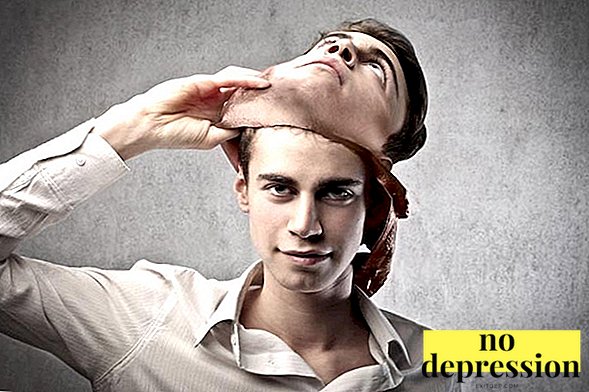In a broad sense, a depressive episode is a condition accompanied by sudden sadness.
This type of disorder has some differences from the usual sadness provoked by certain factors.
Depressive episode refers to pathological conditionsimplying compulsory treatment.
Complications include not only the risk of frequent manifestation of a mental disorder, but also the appearance of a patient. suicidal tendencies.
The concept, characteristics and code of ICD-10

What does a depressive episode mean?
Depressive episode refers to affective disorderswhich are accompanied by somatic, psychotic, cognitive and emotional disorders.
During the period of such a state, the patient loses interest in life, he manifests a decrease in vital energy, increased fatigue and pessimistic mood.
Symptoms of fatigue may cause even minor mental or physical exertion.
The intensity of the manifestations of signs of a depressive episode depends on the individual characteristics of the human psyche.
Special features depressive episode:
- the duration of affective disorder is at least two weeks;
- for ICD-10, the depressive episode is assigned the code F-32.
Causes and risk group
Become the cause of a depressive episode can not only external but also internal factors. The risk group includes patients aged 20-40 years.
To provoke a tendency to this affective disorder can be strong feelings about the loss of loved ones, shocks from other psycho-traumatic situations, as well as some character traits.

AT special risk group includes people from low social class and relatives of those who committed suicide.
Provoke A depressive episode can include the following factors:
- deficiency of serotonin and catecholamines in the body;
- abnormalities of certain types of chromosomes (genetic predisposition);
- excessive anxiety as a character trait;
- constant exposure to stressful situations;
- loss of social contacts (for various reasons);
- the consequences of infectious diseases that destroy certain parts of the brain;
- problems in the intimate sphere (sexual dissatisfaction, unconventional orientation, etc.);
- uncontrolled intake of drugs containing narcotic substances and hormones;
- consequences of serious endocrine abnormalities (dysfunction of the thyroid gland);
- education in immoral conditions (humiliation of the child’s personality by relatives);
- excessive abuse of bad habits (substance abuse, drug addiction, alcoholism);
- the impact of specific traumatic factors (divorce, death of a loved one, etc.).
Symptoms and signs

Atypical depression can manifest with anxiety states or without them.
There are a number of signs of a depressive episode that can distinguish this disorder from a bad mood or emotional experiences triggered by specific factors.
The doctor is able to notice external changes of the patient during a conversation with him. To confirm the diagnosis need a full examination with the use of special psychotherapeutic techniques.
A depressive episode may be followed by by symptoms:
- reduced concentration;
- dermatological hypochondria;
- memory impairment;
- frequent headaches;
- dilated pupils;
- psychogenic dysuria;
- physical inhibition;
- sudden loss or weight gain;
- signs of sudden tachycardia;
- digestive disorders;
- specific chest pains;
- numbness and tingling in the limbs;
- mood swings;
- sleep disturbance (insomnia);
- constant guilt;
- restless legs syndrome;
- tendency to constipation;
- conflict and aggressiveness;
- low self-esteem.

Exists five symptomswhich distinguish this affective disorder from other pathologies.
These include a sudden increase in appetite, discomfort in the limbs (numbness, tingling, and specific severity), drowsiness, a tendency to hysterics and excessive emotional reactions to certain events.
Other symptoms are common for psycho-emotional abnormalities of this group.
Classification and degree
Depressive episode is severe affective disorderwhich can lead to many complications. This condition in medical practice is divided into several types.
Each degree of a depressive episode has its own distinctive features and nuances of manifestation. Determining the stage of development of the disorder is necessary for the selection of the optimal treatment option.
It is possible to identify the degree of a depressive episode by general symptoms or with the help of a special examination.
Degree of Depressive Episode:
- easy form (minimal manifestation of typical symptoms, the presence of constant psycho-emotional stress);
- moderate (medium) stage (intensification of the symptoms of affective disorder disrupts the patient’s vital activity);
- heavy degree (signs of depression become pronounced, the disorder may be accompanied not only by psychosis, but also by hallucinations, impaired consciousness and other dangerous symptoms).
Complications and consequences

A depressive episode may occur at one time or become recurrent affective disorder.
In the first case, the forecasts will be favorable, but only if there is timely medical care.
With recurrent form of depressive episodes risk of complications greatly enhanced. One of the most dangerous conditions provoked by this disorder is the appearance of suicidal tendencies.
Possible consequences depressive episodes:
- indifferent attitude towards life and the world around;
- addiction to alcohol and drug addiction;
- the emergence of thoughts about suicide (as well as committing suicide);
- critical reduction in performance and vital energy;
- manifestation of signs of social phobia (including isolation from society);
- premature death due to exacerbation of chronic diseases.
Diagnostics
Diagnosis of depressive episodes involved psychiatrists or psychotherapists. A suspicion of affective disorder in a patient arises during the first conversation.
A signal of a pathological condition is a hindered reaction to the questions of a specialist, an attempt to look away (for example, in a window or on other objects), as well as a number of other signs.
For confirmation of diagnosis Special psychotherapeutic tests and procedures are used.
When diagnosing a depressive episode, the following can be used. techniques:
- Montgomery-Asberg scale;
- Hamilton Depression Rating Scale;
- Beck scale.
Treatment methods

Therapy for depressive episodes should be carried out. according to an individual schemecompiled by a specialist.
In self-treatment, the likelihood of recovery of the patient’s psychoemotional state is at a minimum level, and the risk of complications is greatly increased.
The main methods of treatment of depressive episodes are considered psychotherapeutic procedures and the course of treatment with special medicines.
Medicines
In the treatment of depressive episodes, three types of drugs are used - antidepressants, antipsychotics and tranquilizers. These medications are selected based on the individual characteristics of the patient's psychoemotional state.
Independently make a decision on the admission of such funds is not recommended. Their uncontrolled reception can greatly aggravate the situation and cause a lack of therapeutic effect.
When treating depressive episodes, the following may be prescribed. drugs:
- serotonin reuptake inhibitors (Venlafaxine);
- tricyclic antidepressants (imipramine);
- drugs category neuroleptics (risperidone);
- selective serotonin reuptake inhibitors (Sertralin);
- tranquilizers (diazepam).
Psychological help

Psychotherapy is inherent treatment depressive episodes.
There are many techniques that allow you to normalize the psycho-emotional state of the patient in a short period of time.
Cure rate directly depends on the correct procedures, therefore, a specialist should schedule the sessions.
In some cases, psychotherapy helps to eliminate depression without the use of medication.
Options for psychological procedures:
- Individual and group sessions (conducted by psychologists or psychotherapists).
- Interpersonal psychotherapy (allows you to normalize the patient's relationship with the outside world).
- Cognitive-behavioral technique (one of the results of the procedure is to eliminate the feeling of excessive guilt inherent in depressive episodes).
- Psychodynamic psychotherapy (It has a general beneficial effect on the psycho-emotional state of the patient).
- Art Therapy (The effect on the patient's psyche is the writing of pictures on a specific subject under the supervision of a specialist).
- Neuro-linguistic programming (the main impact occurs on the level of the human subconscious).
Practical recommendation

The main methods of treating a depressive episode are medicaments and psychotherapeutic methods, but its own plays a special role. patient's attitude to the problem.
Additionally, it is recommended to follow a few rules that will help speed up the healing process and prevent relapse of affective disorder.
If the patient is difficult follow practical recommendationsthen relatives can help him.
Practical recommendations:
- It is necessary to draw up a daily routine.
- Several times a day, breathing exercises are recommended for relaxation.
- Physical activity should be provided fully (for example, morning exercises, which include elementary exercises).
- Dietary control (the menu should include healthy foods that have a positive effect on the functioning of the digestive system).
- Prevention of physical and mental exhaustion.
- Regular work on self-esteem (excluding unwarranted guilt feelings, increasing self-esteem, etc.).
Prevention and prognosis

Prevention of depressive episodes is aimed at exclusion of the negative impact of stressful situations on the psyche and compliance with the rules of a healthy lifestyle.
If there is an excessive sensitivity of the nervous system, it is necessary to use special drugs with a sedative effect as a prophylactic agent (they are prescribed exclusively by a specialist).
Symptoms of affective disorder cannot be resolved on their own or ignore. Otherwise, the risk of complications will increase significantly.
The following are measures to prevent a depressive episode. recommendations:
- respect for sleep and rest;
- rejection of bad habits;
- normalization of the diet;
- taking sedatives in the presence of excessive sensitivity of the psyche;
- prevention of stressful situations.
Depressive episodes respond well to treatment, but only with their timely identification and with the help of special techniques.
Ignoring such affective disorders can provoke complications in the form of prolonged depression and the development of serious diseases associated with mental disorders.
If a depressive episode is suspected, it is necessary as soon as possible. consult a specialist.
Major depressive episode - treatment options:



